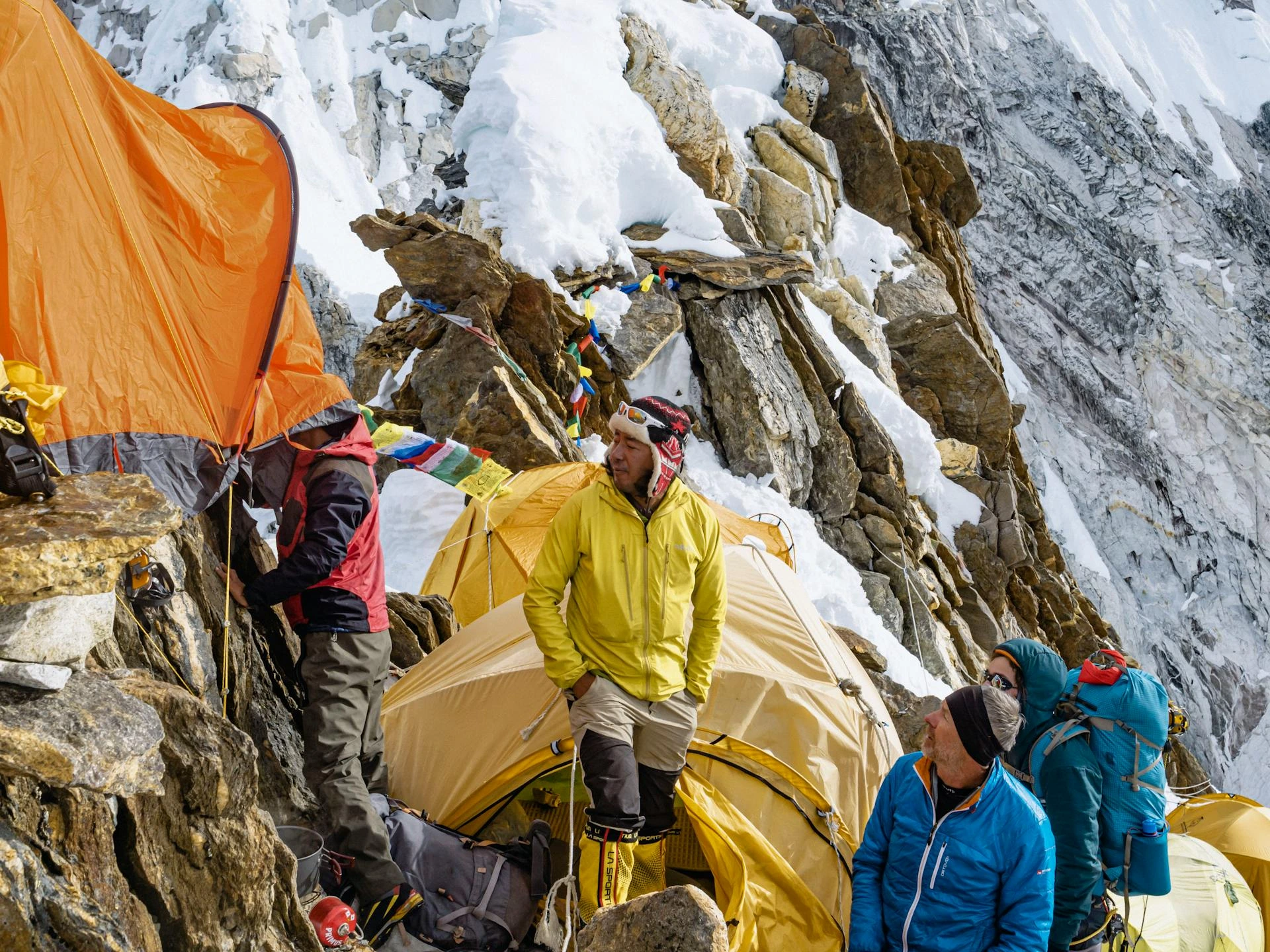Nepal to restrict Everest permits to experienced climbers

John E. Kaye
- Published
- News

Nepal is preparing to introduce a new law that would block climbers from attempting Mount Everest unless they have previously summited at least one 7,000-metre peak within the country, in an effort to improve safety and reduce overcrowding on the world’s highest mountain
The change is part of the Integrated Tourism Bill, proposed in Nepal’s upper house of Parliament on 18 April.
If passed, the law would represent one of the most significant shifts in Himalayan mountaineering policy in years.
Under the new rules, climbers would reportedly be required to show a certificate proving they have climbed a 7,000m peak in Nepal before being granted an Everest permit.
Mount Everest, which stands at 8,848.86 metres (29,031.7 feet), has faced growing criticism over safety risks, especially in the so-called “death zone” near the summit, where oxygen levels are too low to sustain life for long and queues of climbers frequently form.
Nepal has long been accused of issuing too many climbing permits, including to inexperienced climbers, creating bottlenecks, increasing the danger of fatal accidents, and contributing to the mountain’s worsening pollution problem.
More tourists on Everest’s upper slopes have reportedly led to growing levels of garbage, human waste, and environmental degradation.
According to The Independent, the new rules would also make medical certification mandatory, with climbers required to submit a recent fitness assessment from a government-approved institution.
Climbers attempting a record would reportedly be required to declare this in advance.
Guiding teams would also be affected, with both the sardar (lead local support) and mountain guide reportedly required to be Nepali citizens under the new framework.
International expedition operators have expressed concern over the restrictions, arguing that experience on similar peaks elsewhere should also be recognised.
Nepal’s government, however, is pushing ahead with reforms in response to mounting pressure over Everest’s growing commercialisation.
The country, home to eight of the world’s 14 highest mountains, relies heavily on tourism revenue from climbing and trekking.
Permits to summit Everest — currently priced at £8,249 — are set to increase to £11,248 in September, the first fee hike in nearly a decade.
The 2025 Everest climbing season began in April. Nepal has already issued more than 400 permits, with that number expected to pass 500 by the time the main summit window opens in May.
The bill is expected to pass in the National Assembly, where the ruling coalition holds a majority.
Photo, Grisha Grishkoff/Pexels
RECENT ARTICLES
-
 Strong ESG records help firms take R&D global, study finds
Strong ESG records help firms take R&D global, study finds -
 European Commission issues new cancer prevention guidance as EU records 2.7m cases in a year
European Commission issues new cancer prevention guidance as EU records 2.7m cases in a year -
 Artemis II set to carry astronauts around the Moon for first time in 50 years
Artemis II set to carry astronauts around the Moon for first time in 50 years -
 Meet the AI-powered robot that can sort, load and run your laundry on its own
Meet the AI-powered robot that can sort, load and run your laundry on its own -
 Wingsuit skydivers blast through world’s tallest hotel at 124mph in Dubai stunt
Wingsuit skydivers blast through world’s tallest hotel at 124mph in Dubai stunt -
 Centrum Air to launch first European route with Tashkent–Frankfurt flights
Centrum Air to launch first European route with Tashkent–Frankfurt flights -
 UK organisations still falling short on GDPR compliance, benchmark report finds
UK organisations still falling short on GDPR compliance, benchmark report finds -
 Stanley Johnson appears on Ugandan national television during visit highlighting wildlife and conservation ties
Stanley Johnson appears on Ugandan national television during visit highlighting wildlife and conservation ties -
 Anniversary marks first civilian voyage to Antarctica 60 years ago
Anniversary marks first civilian voyage to Antarctica 60 years ago -
 Etihad ranked world’s safest airline for 2026
Etihad ranked world’s safest airline for 2026 -
 Read it here: Asset Management Matters — new supplement out now
Read it here: Asset Management Matters — new supplement out now -
 Breakthroughs that change how we understand health, biology and risk: the new Science Matters supplement is out now
Breakthroughs that change how we understand health, biology and risk: the new Science Matters supplement is out now -
 The new Residence & Citizenship Planning supplement: out now
The new Residence & Citizenship Planning supplement: out now -
 Prague named Europe’s top student city in new comparative study
Prague named Europe’s top student city in new comparative study -
 BGG expands production footprint and backs microalgae as social media drives unprecedented boom in natural wellness
BGG expands production footprint and backs microalgae as social media drives unprecedented boom in natural wellness -
 The European Winter 2026 edition - out now
The European Winter 2026 edition - out now -
 Parliament invites cyber experts to give evidence on new UK cyber security bill
Parliament invites cyber experts to give evidence on new UK cyber security bill -
 EU sustainability rules drive digital compliance push in Uzbekistan ahead of export change
EU sustainability rules drive digital compliance push in Uzbekistan ahead of export change -
 AI boom triggers new wave of data-centre investment across Europe
AI boom triggers new wave of data-centre investment across Europe -
 Lammy travels to Washington as UK joins America’s 250th anniversary programme
Lammy travels to Washington as UK joins America’s 250th anniversary programme -
 China’s BYD overtakes Tesla as world’s largest electric car seller
China’s BYD overtakes Tesla as world’s largest electric car seller -
 FTSE 100 posts strongest annual gain since 2009 as London market faces IPO test
FTSE 100 posts strongest annual gain since 2009 as London market faces IPO test -
 Five of the biggest New Year’s Eve fireworks happening tonight — and where to watch them
Five of the biggest New Year’s Eve fireworks happening tonight — and where to watch them -
 UK education group signs agreement to operate UN training centre network hub
UK education group signs agreement to operate UN training centre network hub -
 Cornwall project to open new UK test airspace for drones and autonomous aircraft
Cornwall project to open new UK test airspace for drones and autonomous aircraft



























